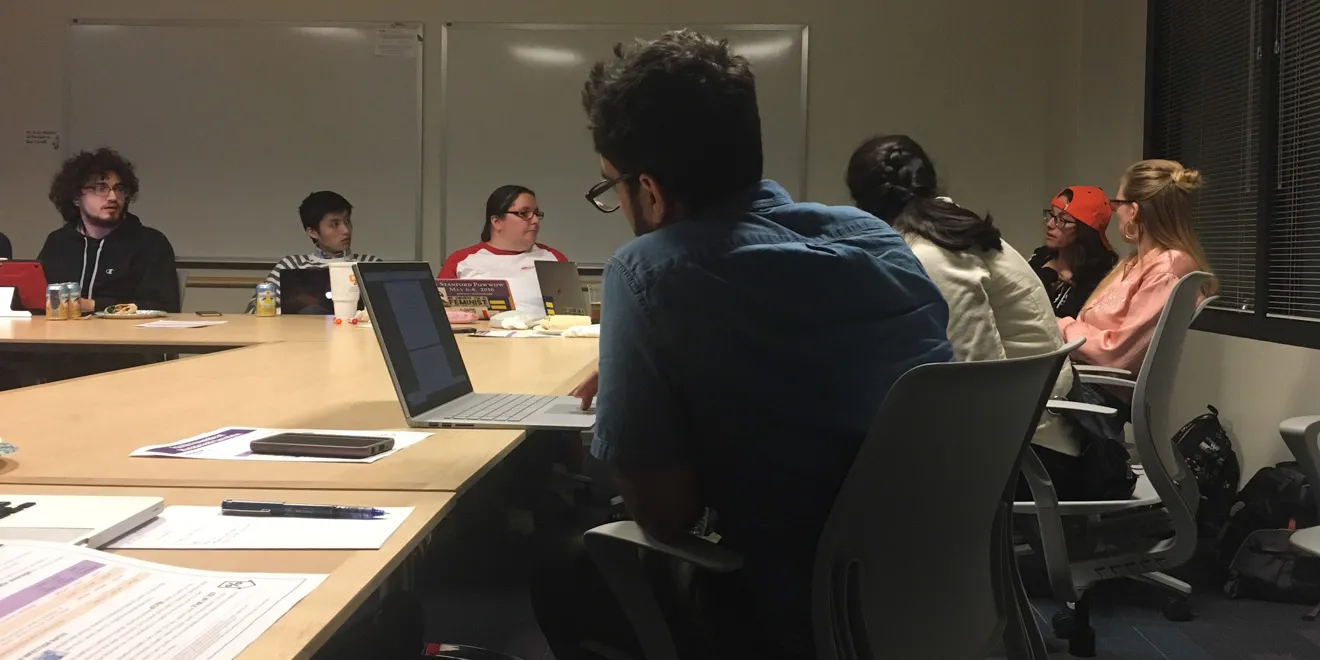Yesterday, the Graduate Student Council (GSC) discussed a resolution on Stanford’s Campus Climate Survey as well as a resolution on Stanford’s General Use Permit.
The first resolution on the agenda was the Resolution on Future Campus Climate Surveys, authored by Alejandro Schuler, a GSC officer and fourth-year PhD student at the School of Medicine. The resolution calls on Stanford to participate in the Association of American Universities (AAU) Campus Climate Survey, and also asks that the University “strongly advocate for the continued development of the AAU instrument and its continued routine use among peer institutions.” It also asks Stanford to administer its own internally-designed climate survey to supplement data from the AAU survey, specifically in years when the AAU survey is not being administered.
To ensure the completeness of the internally-designed survey, the resolution also calls for the University to create a permanent Campus Climate Survey Committee. The committee, which would be composed of Stanford students, would plan internal campus climate surveys, as well as coordinate with the AAU in order to collect robust data.
During the meeting, one point of discussion revolved around how the Campus Climate Survey Committee would be staffed. GSC members expressed their hope that it would primarily consist of students with strong backgrounds in survey methodology, but also include perspectives from students in other fields that interact with disparate parts of Stanford’s campus climate.
In its meeting, the GSC also discussed Stanford’s General Use Permit.
Courtney Pal ’18, a member of Stanford Coalition for Planning an Equitable 2035, came to the GSC to advocate for the joint resolution on the University’s General Use Permit.
“Our resolution asks the student body to support greater commitments to affordable housing and transportation benefits for its workers and workers’ rights,” Pal said. “We’re trying to get students be motivated, passionate, excited about this opportunity to impact the future of Stanford, to have it be a vision that we all really believe in.”
Specifically, Pal pointed out that the current plan for the General Use Permit, which allocates 2000 extra units of graduate housing, does not provide enough housing for all the new graduate students that Stanford plans to bring to campus. Additionally, she argued that the General Use Permit does not address transportation issues that many workers on campus face.
The GSC’s discussion of the resolution focused mostly on the number of demands the GSC should make regarding the General Use Permit, and whether or not passing the resolution has the potential to derail University negotiations on the subject.
Both resolutions discussed in the GSC meeting will be voted on in upcoming weeks.
Contact Adesuwa Agbonile at adesuwaa ‘at’ stanford.edu.
